Owning a swimming pool in Australia is a luxury, but without the right heating solution, many pools sit unused during the cooler months. Cold water, rising energy bills, and inconsistent heating are common frustrations for homeowners in Perth, Sydney, Brisbane, and beyond.
The solution? Modern pool heat pumps.
In 2025, they’ve become the most efficient, eco-friendly, and cost-effective way to enjoy year-round swimming, without the high costs of gas or the weather limitations of solar.
In this post, we’ll cover:
- Why pool heat pumps are the smartest choice for Australian pools
- How do they compare with solar and gas systems
- The top-performing models in 2025
- Installation costs, expert maintenance tips, and FAQs
Why Choose a Pool Heat Pump in Australia?
Pool heat pumps work by transferring warmth from the surrounding air into your pool water, making them up to 80% more energy-efficient than gas heaters.
Energy Efficiency & Running Costs
Pool heat pumps transfer existing heat from the air into pool water, making them up to 80% more energy efficient than traditional heaters. With COP ratings above 10, they deliver significant savings on daily running costs.
For Perth households, this means daily operating costs as low as $2–$5 (and even less when paired with solar panels).
Year-Round Swimming Comfort
Inverter heat pumps keep pools warm across all seasons. In Perth’s mild winters, they easily extend swimming from April through September, ensuring your investment is used year-round.
Environmental Benefits
Pool heat pumps are one of the greenest heating options available. They:
- Do not burn fossil fuels
- Use advanced R32 refrigerant (lower Global Warming Potential)
- Can integrate with solar energy systems for even lower carbon emissions
How Do Pool Heat Pumps Work?
Heat pumps operate like air conditioners in reverse.
- Ambient air is drawn in by a fan.
- Heat is absorbed by the refrigerant in an evaporator coil.
- The refrigerant is compressed into a hot gas.
- Heat is transferred into the pool water via a titanium heat exchanger.
- The gas cools and recycles back through the system.
The efficiency is measured by COP, a higher COP = greater efficiency and lower costs.
Comparing Pool Heat Pumps with Other Heating Options
| Heating Option | Pros | Cons |
|---|---|---|
| Gas Pool Heaters | Heats water rapidly, ideal for on-demand use | High running costs, less eco-friendly |
| Solar Pool Heating | Sustainable, free energy source | Weather-dependent, limited winter performance |
| Pool Heat Pumps | Energy-efficient, eco-friendly, long lifespan | Higher upfront cost, slower than gas heaters |
Verdict: Heat pumps strike the best balance between cost, efficiency, and reliability, making them the #1 choice for Australian homeowners.
Key Factors When Choosing the Best Pool Heat Pump
- Pool Size & Climate: Larger pools and cooler climates require higher-capacity units.
- Inverter Technology: Adjusts output for quieter, more efficient heating.
- COP Rating: Look for COP 5+; top models exceed 10–16 COP.
- Noise Levels: Choose models around 40–50 dB for residential comfort.
- Installation Costs: Professional installation ($800–$1,500 on average).
- Durability & Warranty: Titanium heat exchangers and long warranties ensure long-term reliability.
- Extra Features: Wi-Fi control, smart defrost systems, and automation compatibility add convenience.
10 Best Pool Heat Pumps in Australia (2025 Reviews)
Below, we review the top 10 heat pumps for Australian pools in 2025, based on efficiency, durability, quietness, and value.
These models have been tested against Australian conditions and compared using real-world energy performance.
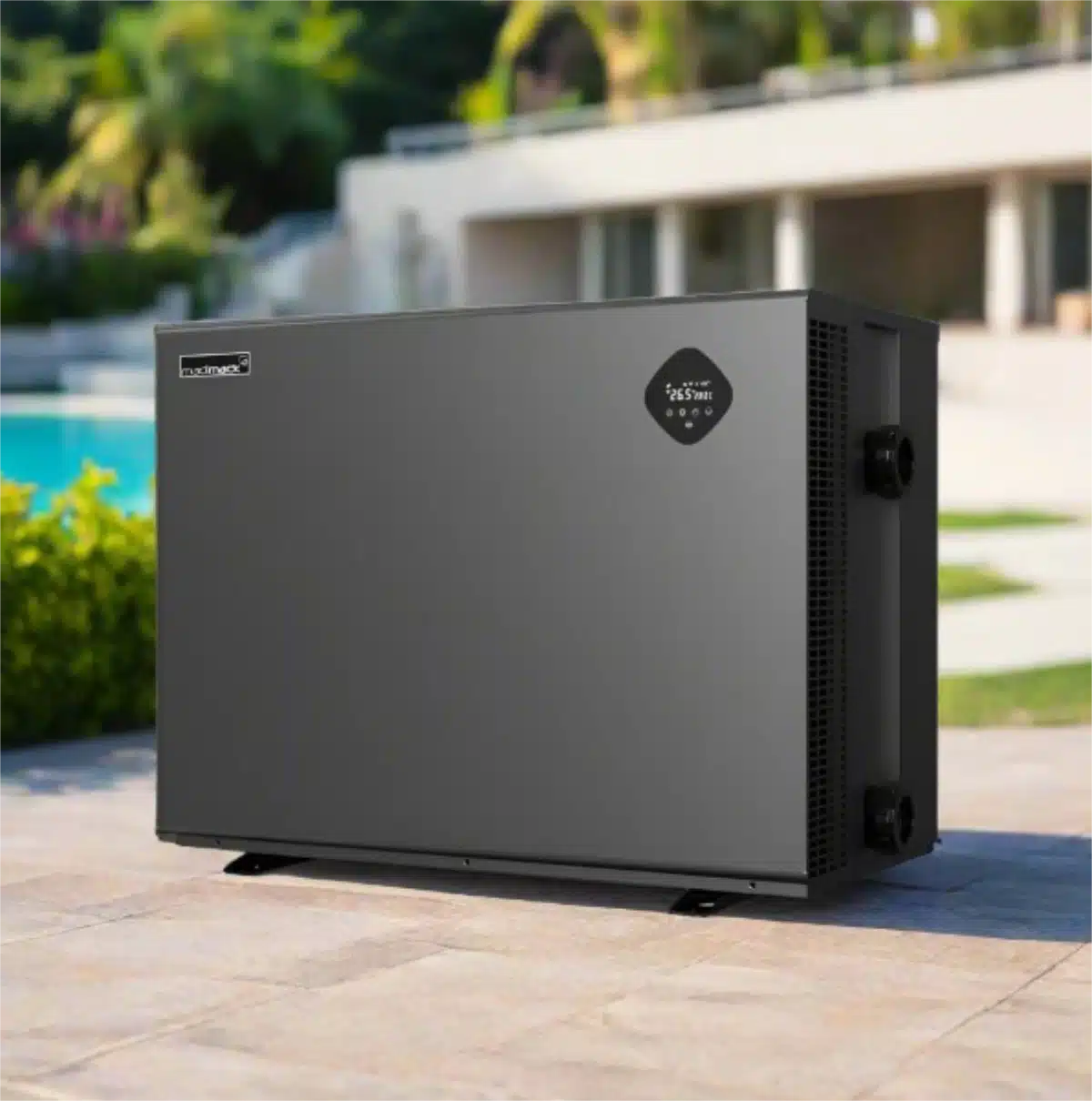
1. Madimack Elite V3: Best Overall Efficiency
The Madimack Elite V3 is Australia’s leading pool heat pump for 2025, offering one of the highest COP ratings on the market (up to 16.4). Built with a titanium heat exchanger, it handles saltwater and chlorine pools with ease. Thanks to its inverter technology, it operates at just 38 dB—quieter than a household fridge.
Smart Wi-Fi controls let you manage your pool temperature from anywhere, and the eco-friendly R32 refrigerant ensures compliance with modern energy standards. While the upfront cost is higher, the long-term running savings make it the most efficient choice for Australian homeowners.
Best suited for: Year-round pool heating, large pools, and energy-conscious buyers.
Pros:
- Industry-leading COP efficiency
- Ultra-quiet at 38 dB
- Wi-Fi app control
- Titanium exchanger for durability
Cons:
- Higher upfront price
- Professional installation recommended
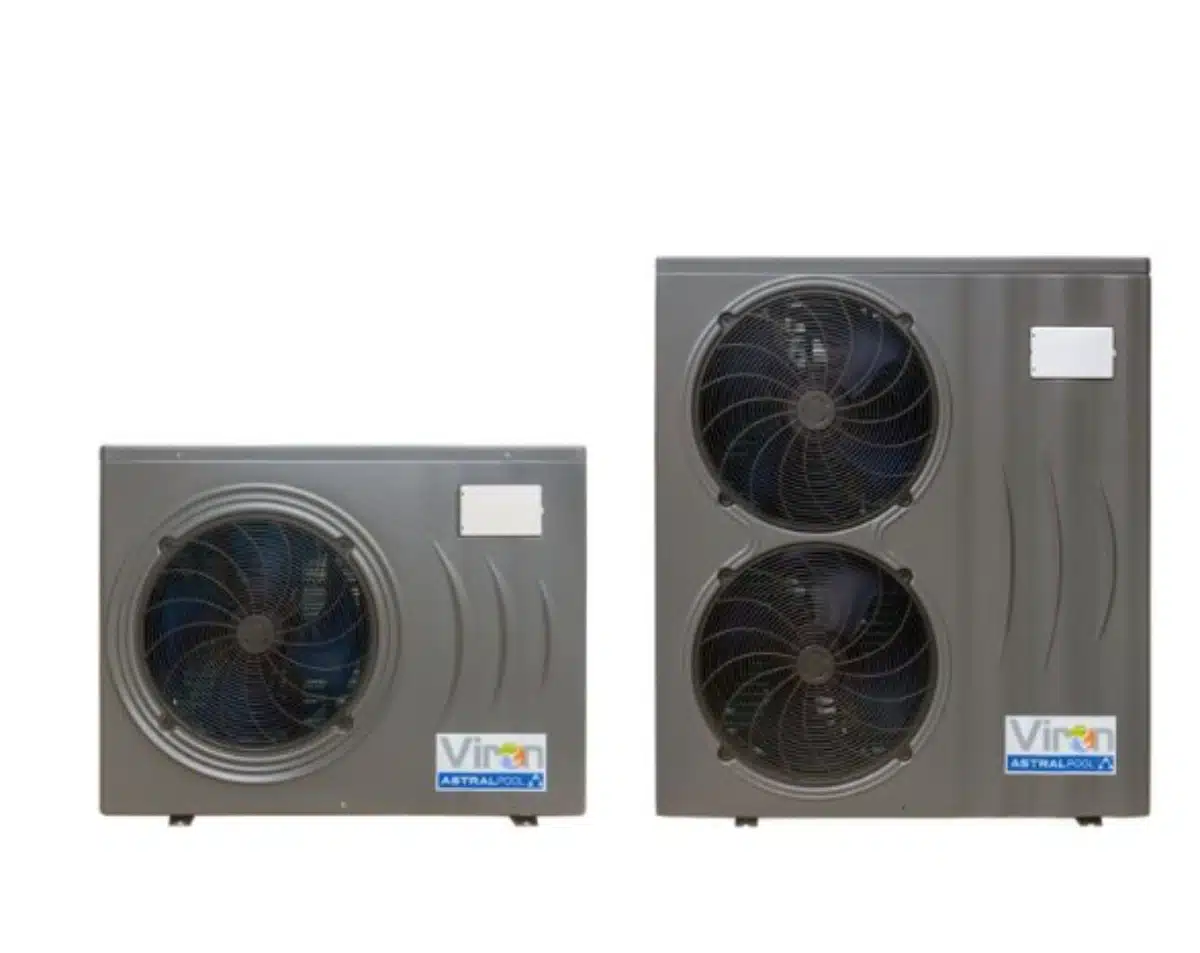
2. AstralPool Viron Inverter: Trusted Brand with Premium Build
AstralPool is a household name in Australian pool equipment, and the Viron Inverter series is built for performance and reliability. It delivers a COP up to 12.5, making it highly efficient while maintaining quiet operation.
A standout feature is its marine-grade casing, designed for Australia’s harsh climate. With titanium heat exchangers and R32 refrigerant, this model is built for longevity.
Unlike the Madimack, it doesn’t offer Wi-Fi as standard, but its long warranty coverage and dealer support network provide peace of mind.
Best suited for: Homeowners who value brand reliability and want a system with strong local support.
Pros:
- Reputable Australian-supported brand
- Titanium exchanger for durability
- Excellent warranty support
- Designed for local climate conditions
Cons:
- Fewer smart features
- Slightly louder than Madimack at full load
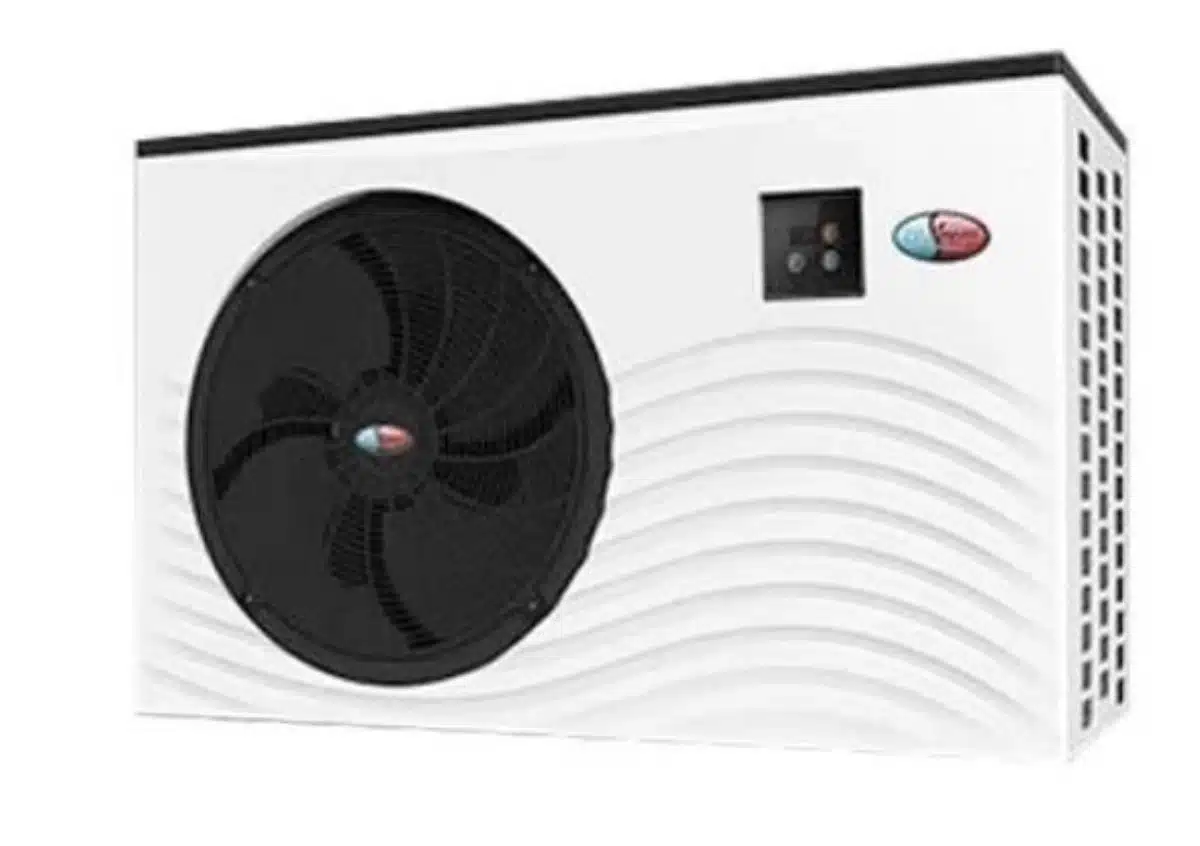
3. EvoHeat Fusion Series: Quiet & Budget-Friendly
The EvoHeat Fusion Series is a popular choice for smaller to mid-sized pools thanks to its compact design and affordable pricing. Despite being budget-friendly, it still offers inverter technology, keeping running costs low even in cooler months.
One of the quietest budget models, the Fusion series averages 41 dB, ensuring comfort during poolside use. It’s also eco-conscious, using R32 refrigerant. While it can’t match the performance of high-end models like Madimack, it’s a value pick for families who want reliable heating without the premium cost.
Best suited for: Small to medium pools, budget-conscious buyers.
Pros:
- Great value for money
- Compact size for tight spaces
- Quiet operation
- Works efficiently in temperate climates
Cons:
- Lower capacity than premium models
- Not ideal for very large pools
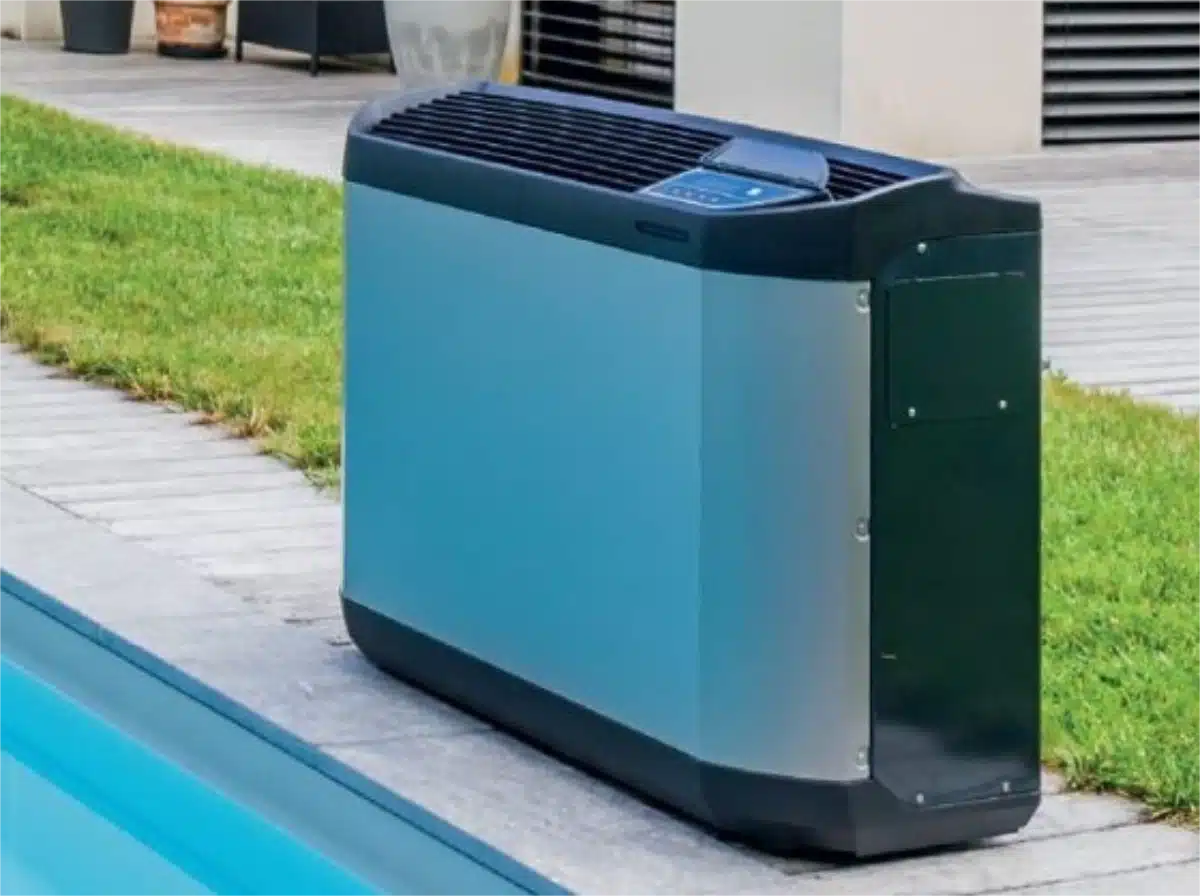
4. Zodiac Z400 iQ: Smart Wi-Fi Features
Zodiac’s Z400 iQ brings pool heating into the smart era. With built-in Wi-Fi connectivity, homeowners can adjust heating schedules directly from their phone. It also offers auto defrost functionality, meaning it performs well even in colder Australian states.
The Z400 balances efficiency (COP ~11.0) with style; it has a sleek, modern design that blends seamlessly into backyards. However, this smart functionality comes at a premium, with a higher upfront cost compared to mid-range options.
Best suited for: Tech-savvy homeowners who value smart automation and design.
Pros:
- Smart Wi-Fi & app control
- Reliable all-weather performance
- Sleek, modern look
- Quiet operation at ~40 dB
Cons:
- Premium pricing
- Slightly lower COP than Madimack
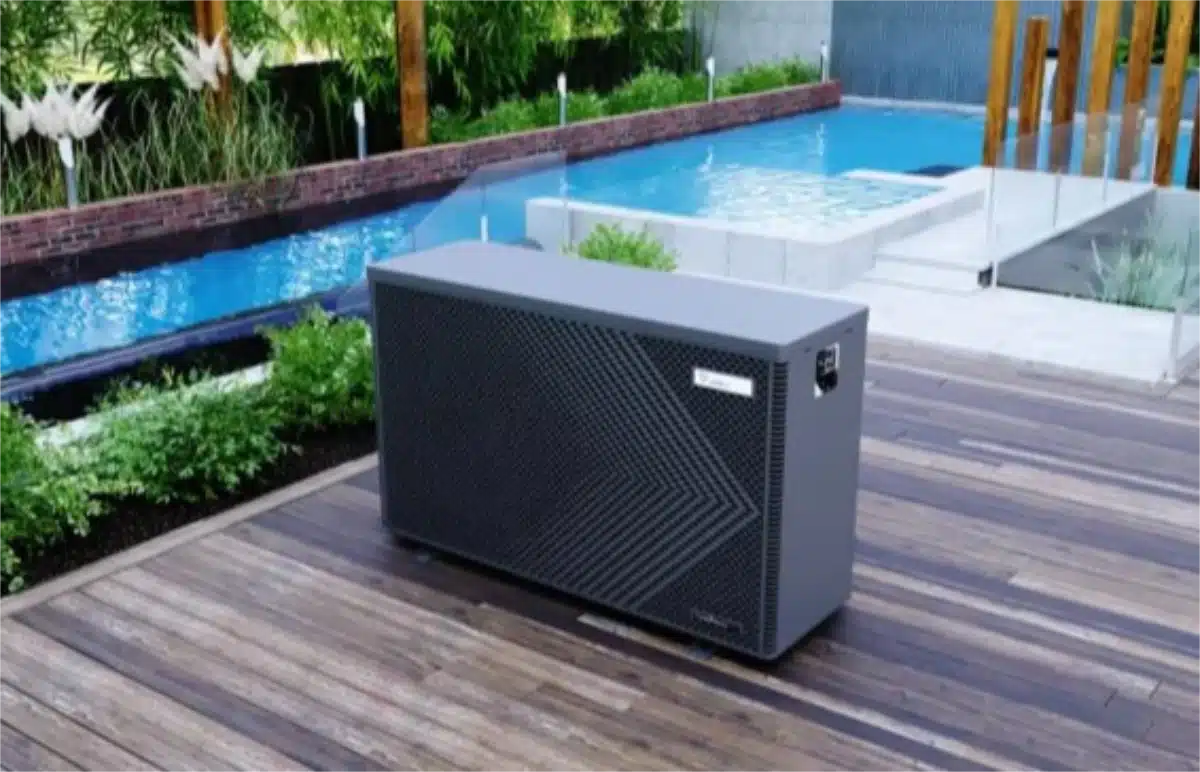
5. Heatseeker Vortex: Best Mid-Range Option
For pool owners seeking a balance between cost and performance, the Heatseeker Vortex is a strong mid-tier option. With inverter technology, a titanium heat exchanger, and a COP of up to 10.8, it delivers efficiency at a more accessible price point.
It isn’t the quietest pump on the market (around 42 dB), but it’s reliable and built specifically for Australian conditions. For many families, the Heatseeker Vortex represents a sweet spot between EvoHeat affordability and AstralPool durability.
Best suited for: Mid-sized pools, buyers seeking value with solid performance.
Pros:
- Good value for mid-range buyers
- Titanium durability
- Efficient inverter system
- Made for the Australian climate
Cons:
- Louder than premium models
- Fewer smart features
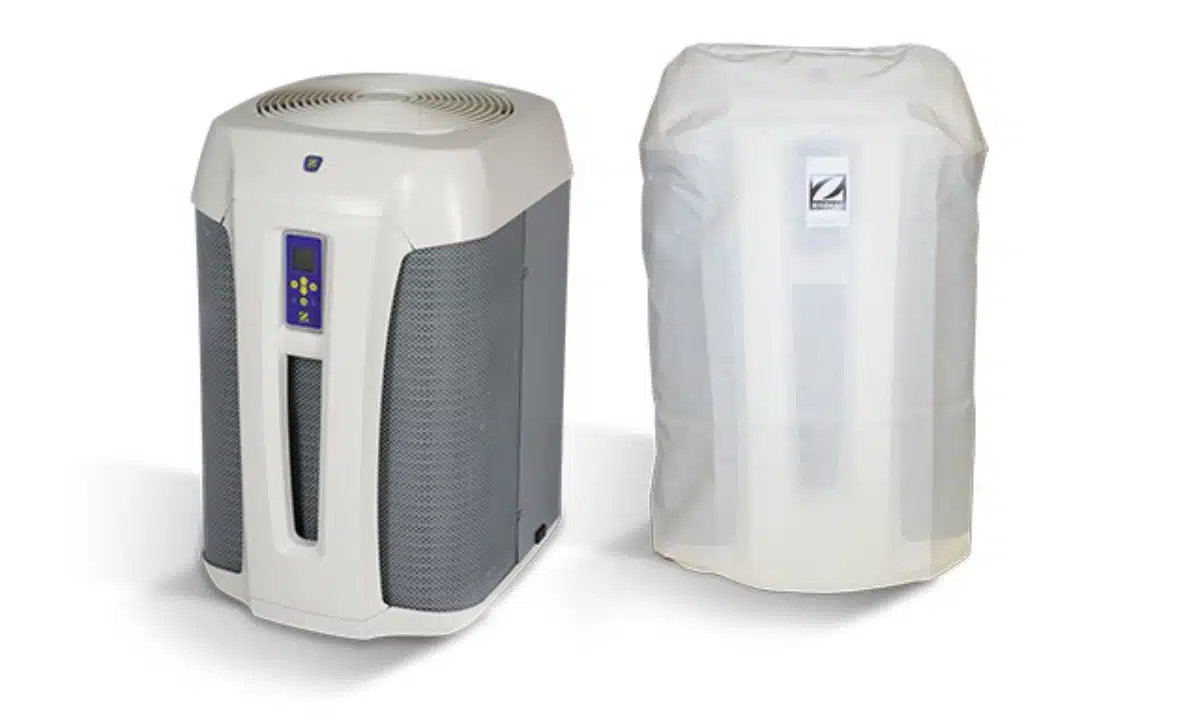
6. Zodiac ZS500: Eco-Smart Versatility
The Zodiac ZS500 stands out with its versatile Heat Select technology, allowing pool owners to choose between Eco, Smart, and Boost modes. It features a 20% larger heat exchanger, which enhances its capacity to capture and transfer heat from the air, great for efficiency in varying Australian climates.
Its vertical blower unit and compact design make it ideal for discreet installations behind walls or landscapes.
Pros:
- Three operation modes for efficiency control
- Efficient inverter technology
- Compact footprint and quiet vertical fan
Cons:
- COP and noise level specs are not clearly documented
- Installation may require professional configuration
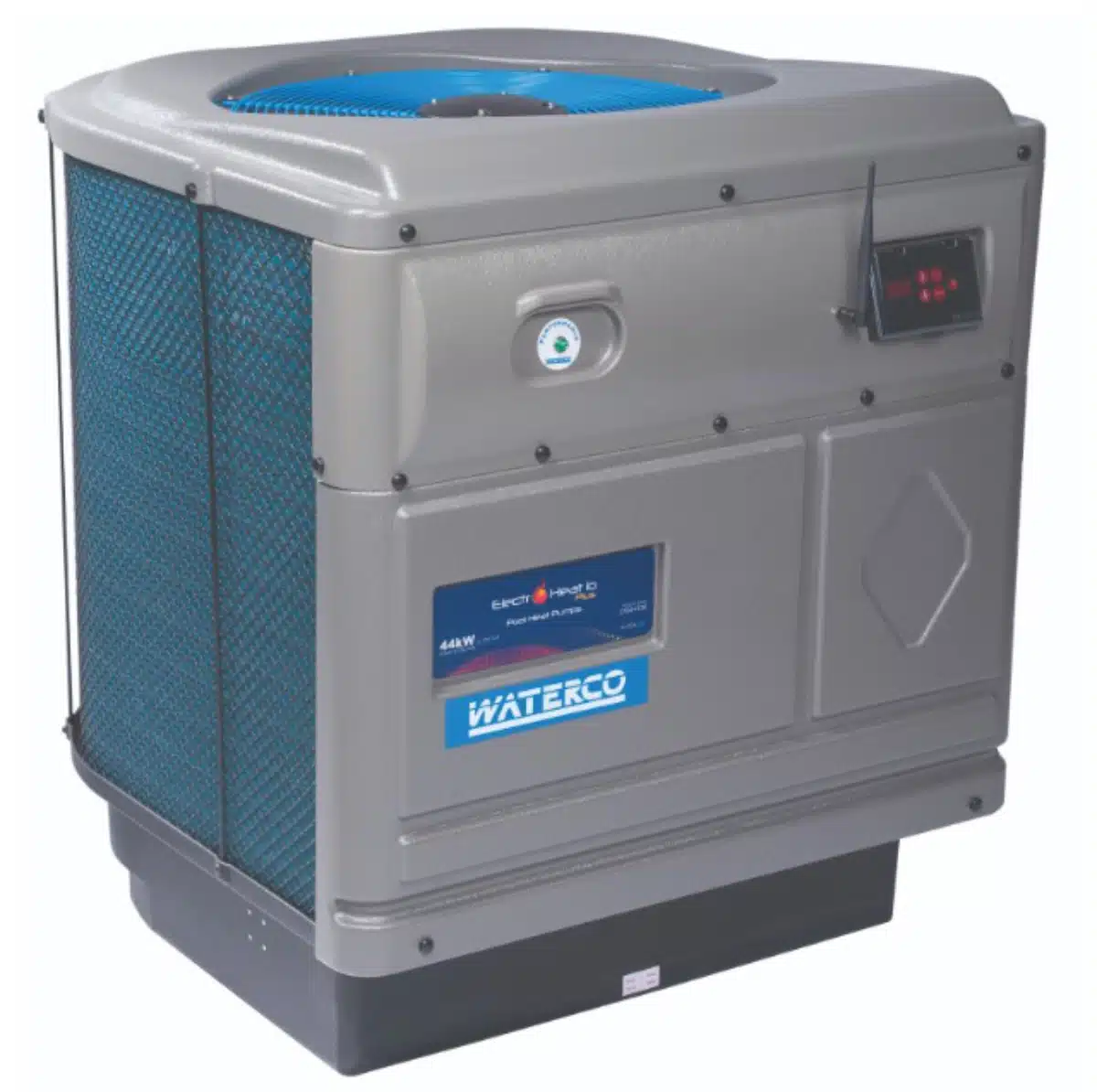
7. Waterco Electroheat Plus / Electroheat MKV: Reliable Aussie Innovation with Wi-Fi
Waterco’s Electroheat Plus and Electroheat MKV Wi‑Fi models deliver consistent performance using ambient air, even in temperatures above 10°C, with vertical venting and a large evaporator for faster heating.
The MKV Wi‑Fi adds remote control convenience via a mobile app, plus a corrosion-resistant evaporator coating designed for humid or coastal Australian environments.
Pros:
- Wi‑Fi enabled for remote control
- Durable design for coastal use
- Efficient heating even at moderate temperatures
Cons:
- Uses R410A refrigerant (less eco-friendly than R32)
- Mixed user reviews highlight potential reliability issues
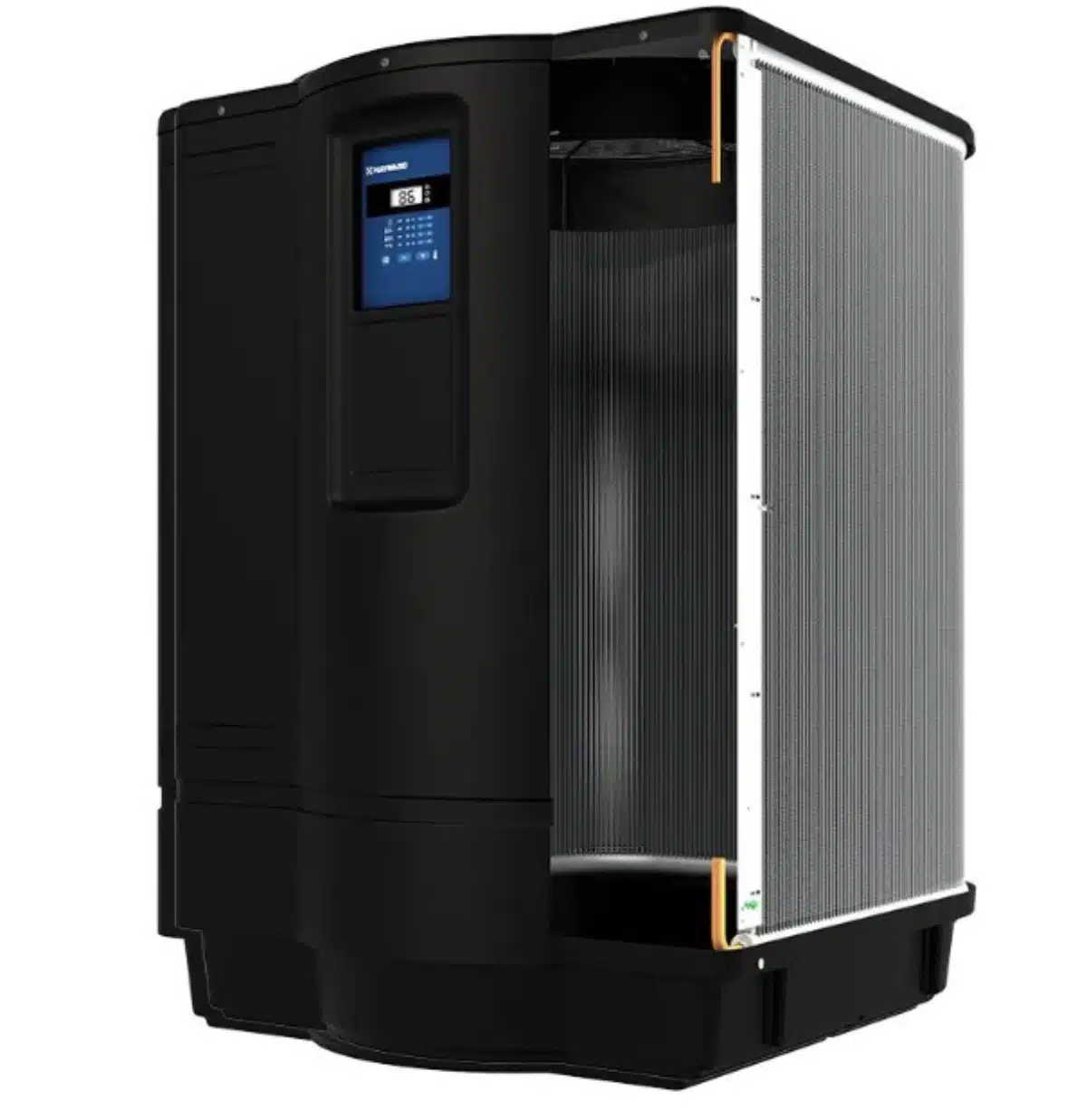
8. Hayward HeatPro Series: Quiet Power & Corrosion Resistance
The Hayward HeatPro series is engineered for whisper-quiet operation, featuring profiled fan blades and heavy-duty scroll compressors that reduce noise while maintaining airflow.
It uses a titanium counterflow heat exchanger and corrosion-resistant evaporator fins, making it especially suited for coastal and saltwater pools. In warm climates, Hayward reports energy savings of up to 70% compared to older heat systems.
Pros:
- Ultra-quiet operation for backyard tranquility
- Superior corrosion protection
- Strong performance even in cooler air
Cons:
- Premium pricing
- Limited smart tech integration
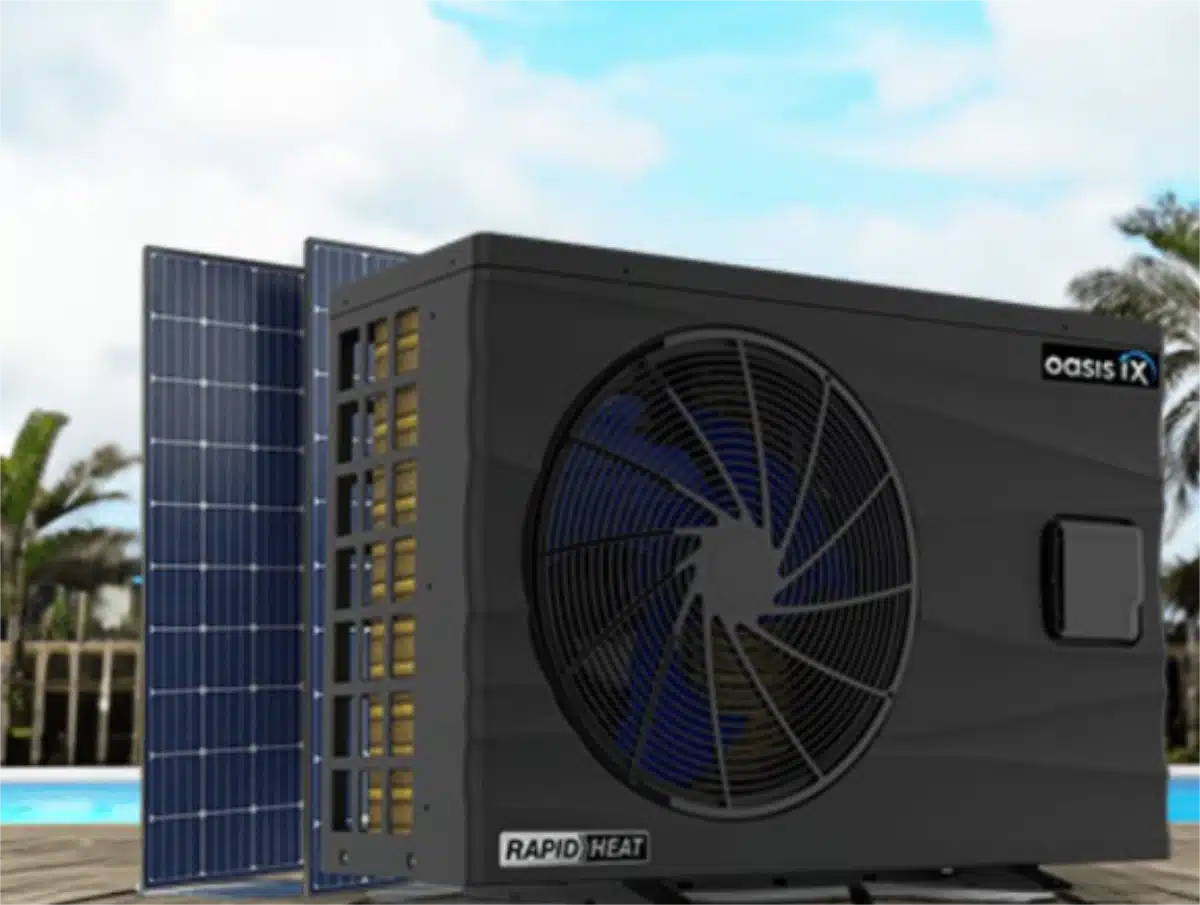
9. Oasis X Series: Whisper-Quiet, Corrosion-Resistant Performance
The Oasis X Series Inverter Heat Pumps deliver ultra‑quiet operation (often described as “whisper‑quiet” by installers) and use a titanium spiral heat exchanger backed by a lifetime corrosion warranty—ideal for saltwater and coastal pools in Australia.
Built to handle up to eight months of seasonal use, these units run efficiently thanks to inverter technology and a corrosion-resistant ABS casing. A real‑world owner shared that after replacing solar heating, the pump maintained pool temps above 29 °C for months on end with very low power bills.
Pros:
- Exceptionally quiet performance
- Lifetime warranty on the titanium exchanger
- Built for Australian coastal conditions
Cons:
- Precise COP and noise specifications are not publicly listed
- A smaller dealer network may limit availability
Best for: homeowners seeking near-silent operation and long-term durability.
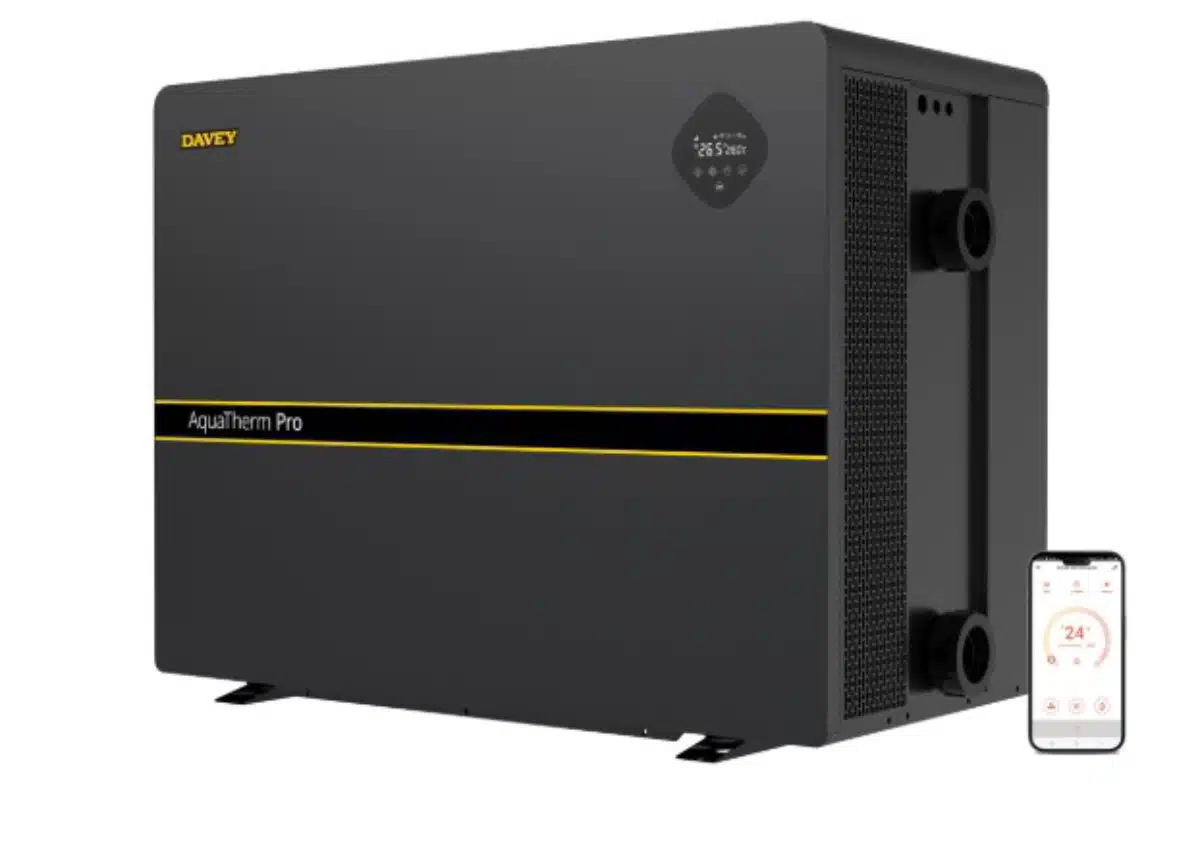
10. Davey Eco Inverter / AquaThermPRO: Quiet, High-Efficiency with Eco-Friendly Design
Davey’s Eco Inverter series, now integrated into the AquaThermPRO line under Waterco, delivers modern inverter tech with whisper-quiet operation down to 40 dB – comparable to library noise levels.
Featuring an efficient titanium twisted heat exchanger, driven by a reliable Mitsubishi DC twin-rotary compressor housed in a robust alloy casing, it’s built for durability. The AquaThermPRO also offers three performance modes (Turbo, Perfect, Silence), built-in Wi-Fi control, and operates efficiently even down to –15 °C.
Pros:
- Very quiet and energy-efficient
- Flexible performance modes for varied needs
- Built-in Wi-Fi for remote operation
Cons:
- Higher price tier (reflecting premium features)
- Some user concerns around long-term service response
Best for: tech-savvy users prioritizing remote control, efficiency, and performance in cooler climates.
Installation Costs in Perth
- Standard installations: $800 – $1,500
- Complex setups: higher if electrical/plumbing upgrades are needed
- Professional pool equipment installation ensures compliance and warranty protection
Maintenance Tips for Longer Lifespan
- Keep the area around the heat pump clear for airflow
- Clean filters regularly
- Monitor water chemistry to avoid scaling
- Schedule annual professional servicing
- Use a pool cover to reduce heat loss and save costs
FAQs
Final Thoughts
In 2025, pool heat pumps are the clear winner for Aussies who want affordable, eco-friendly, and reliable pool heating. With trusted brands like Madimack, EvoHeat, AstralPool, and Hayward, there’s a model to suit every pool size, climate, and budget.
If you’re in Perth or anywhere in Australia, investing in a quality heat pump ensures year-round swimming comfort and long-term savings.
Get a tailored recommendation from 1 Pool Care for your pool in Perth or anywhere in Australia.
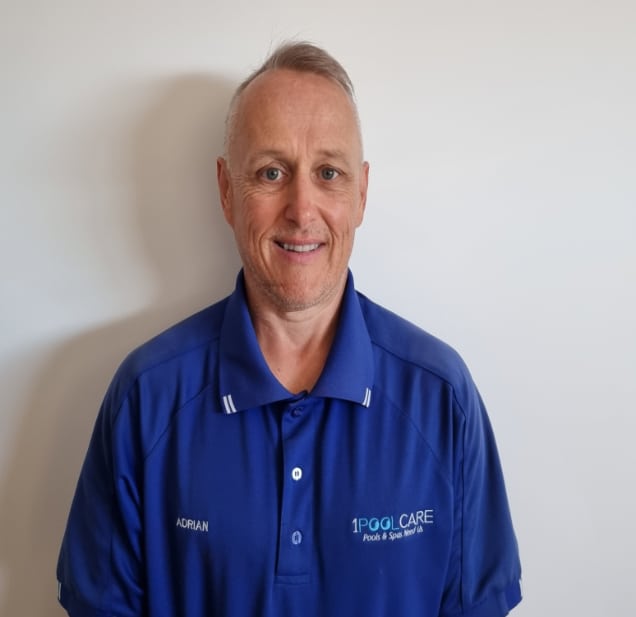
With over 20 years of industry experience, Adrian Mole is the founder of 1 Pool Care, a leading mobile pool service in Perth. Known for his expert knowledge and reliable service, Adrian delivers professional pool cleaning, equipment repairs, and water balancing across the metro area. Backed by SPASA accreditation, he’s committed to quality, convenience, and customer satisfaction.

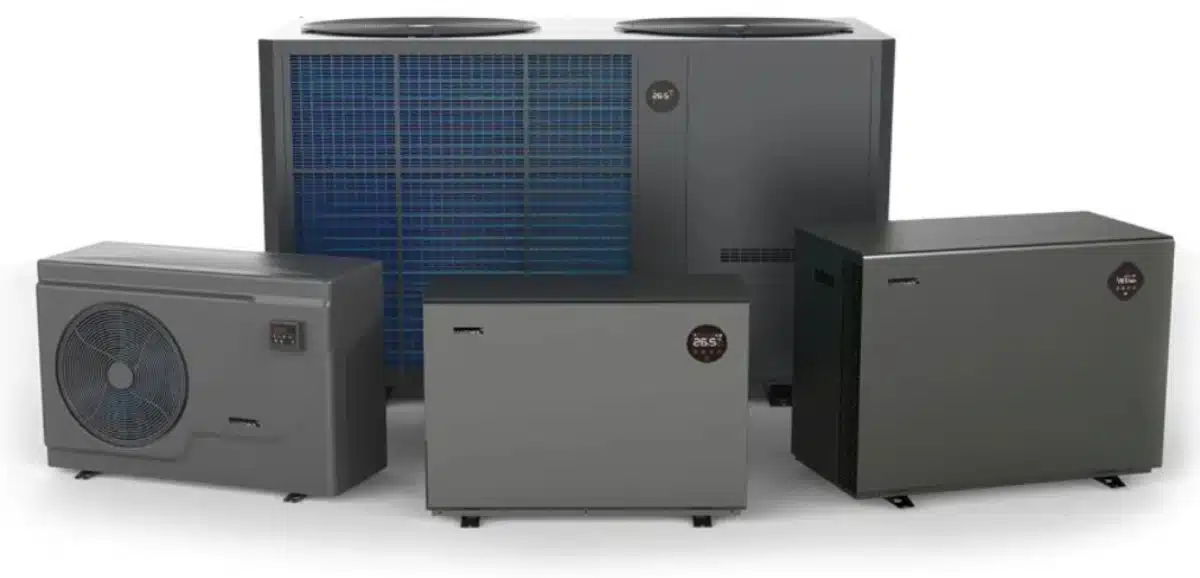

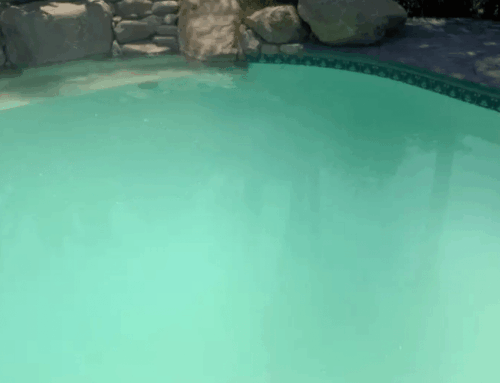
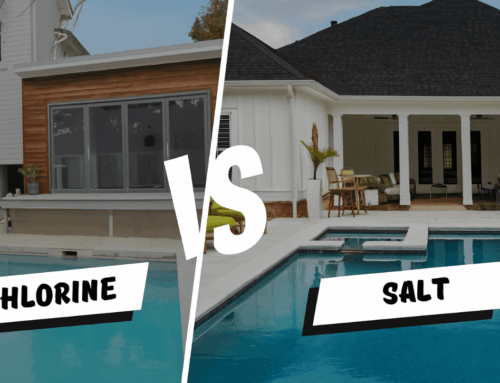
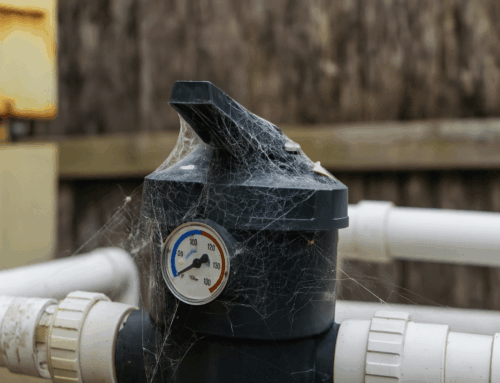





Social Media